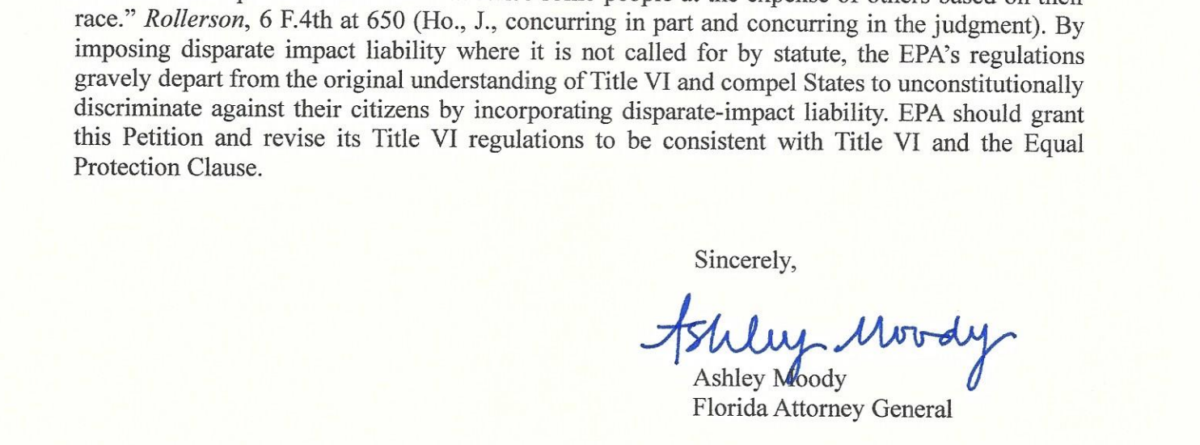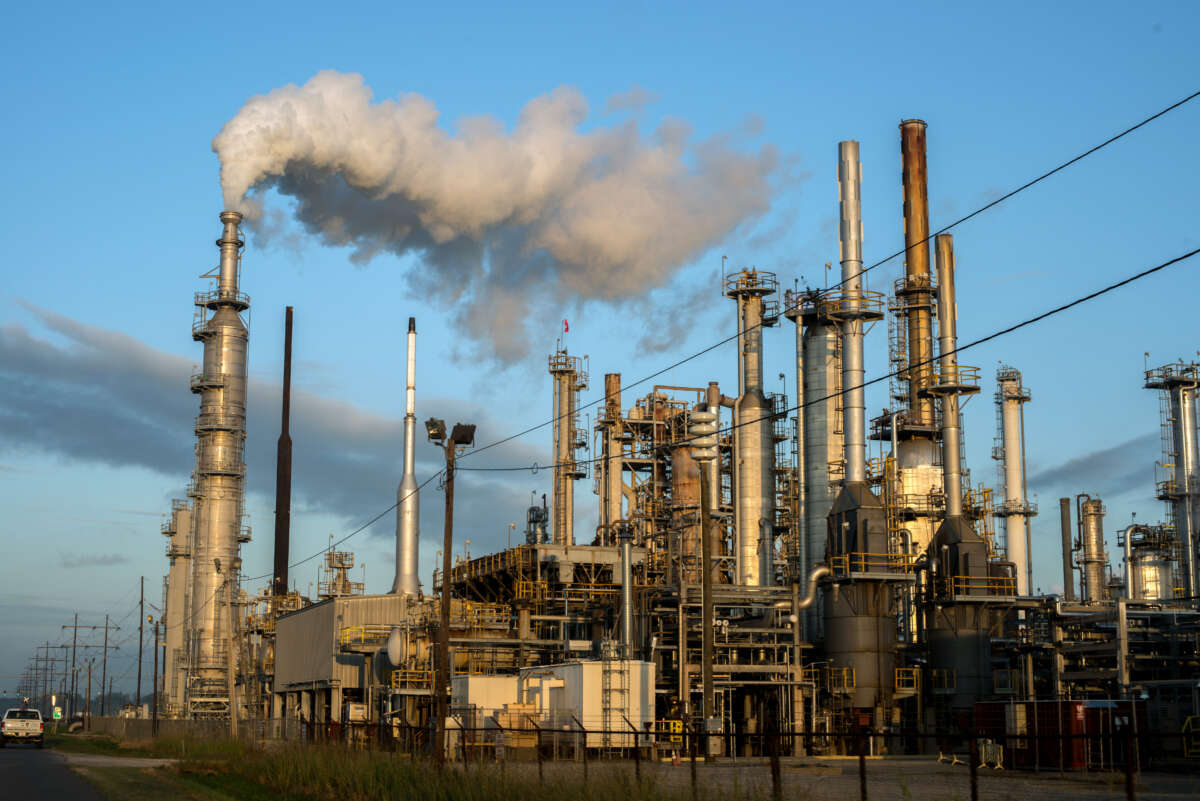Echoing arguments similar to those used by the conservative majority on the U.S. Supreme Court striking down affirmative action, Republican attorneys general from 23 states petitioned the U.S. Environmental Protection Agency this week to stop taking race into account when regulating pollution.
The petition, authored by the office of Florida Attorney General Ashley Moody, was filed Tuesday with the EPA. It is only a request, but it highlights stiff opposition from conservative states to the Biden administration’s signature environmental justice policies, which include hundreds of millions of dollars for environmental justice projects.
The push could lead to a change in EPA policy if Donald Trump — whose administration was poised to gut the civil-rights law in the final days of his presidency — retakes power in January.

In the United States, deadly pollution is disproportionately concentrated in poor and minority neighborhoods. The petition asks the agency to stop taking the “disparate impact” of this pollution into account when regulating it, altering how the agency enforces Title VI of the Civil Rights Act of 1964.
Title VI bars recipients of federal funds from engaging in discrimination. After the act was passed, the EPA wrote rules that allowed it to take into account the “disparate impact” that pollution might have on a minority group. Those rules were rarely enforced before Biden took office.
Andre Segura, vice president of litigation at Earthjustice, called the petition “outrageous” and called on the EPA to “swifty reject” it.
“The fact is, many of the states that have signed the petition have historically allowed these harmful facilities to be placed in predominantly Black and brown communities, without regard for the health and safety of residents,” Segura said. “These decades-old Title VI regulations are critical tools for the federal government to use to ensure that funding is not used to perpetuate this toxic legacy.”
The petition claims that the law requires states to “engage in racial engineering.”
“The EPA’s regulations gravely depart from the original understanding of Title VI and compel States to unconstitutionally discriminate against their citizens by incorporating disparate-impact liability,” the petitioners wrote.
Citing pending litigation, the EPA declined to comment.
But EPA Administrator Michael Regan told attendees of the Society of Environmental Journalists national conference on April 5 that the agency would push to ensure that the civil-rights law can be applied in environmental cases.
“We’ll continue to evaluate what tools we have in that Title VI space,” Regan said. “We are remaining vigilant and as creative as possible in terms of using our statutory and legal authority to protect every person in this country.”
The petition has its roots in an aborted 2022 attempt by the EPA to investigate how the state of Louisiana enforced its pollution regulations.
After uncovering information that regulators in that state had not done enough to inform the public about the risk of cancer-causing chemicals coming from the Denka chloroprene plant in LaPlace, the EPA sued the plant.
But then the state of Louisiana sued the EPA — and won.
The Denka plant is the only U.S. facility that produces chloroprene, a key component of wetsuits. It is located in a majority-Black ZIP code in southern Louisiana that is part of the industry-heavy region dubbed “Cancer Alley.”
“To be sure, if a decision maker has to consider race to decide, it has indeed participated in racism,” U.S. District Judge James Cain wrote in his Jan. 24 decision. “Pollution does not discriminate.”
Cain’s ruling barred the EPA from doing any Title VI enforcement in environmental cases in the state.
Louisiana Attorney General Liz Murrill, a Republican, is not one of the 23 signatories to the petition. “We have our own thing going on,” press secretary Lester Duhe said. “We can’t join every party.”
Trump is silencing political dissent. We appeal for your support.
Progressive nonprofits are the latest target caught in Trump’s crosshairs. With the aim of eliminating political opposition, Trump and his sycophants are working to curb government funding, constrain private foundations, and even cut tax-exempt status from organizations he dislikes.
We’re concerned, because Truthout is not immune to such bad-faith attacks.
We can only resist Trump’s attacks by cultivating a strong base of support. The right-wing mediasphere is funded comfortably by billionaire owners and venture capitalist philanthropists. At Truthout, we have you.
Truthout has launched a fundraiser to raise $38,000 in the next 6 days. Please take a meaningful action in the fight against authoritarianism: make a one-time or monthly donation to Truthout. If you have the means, please dig deep.
